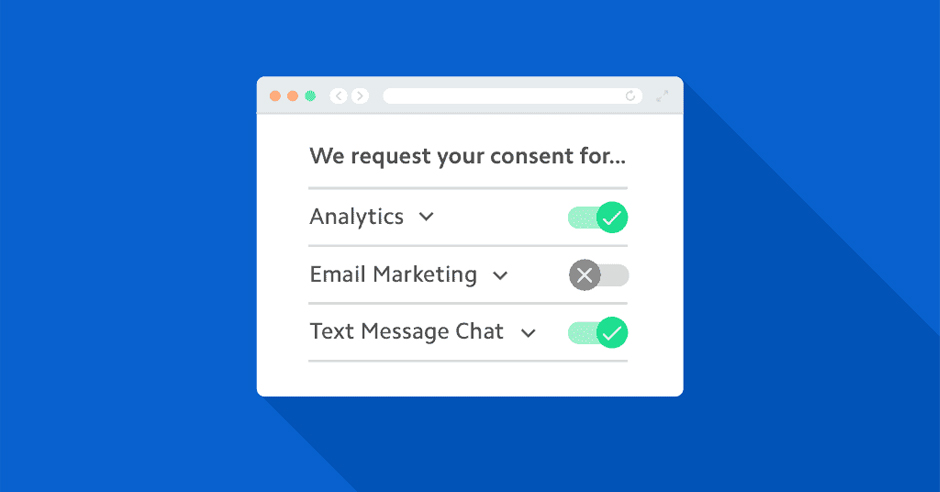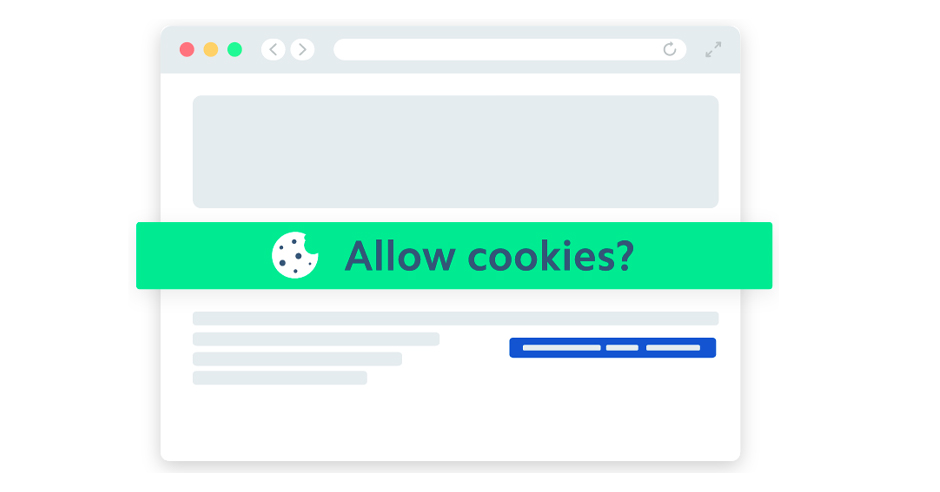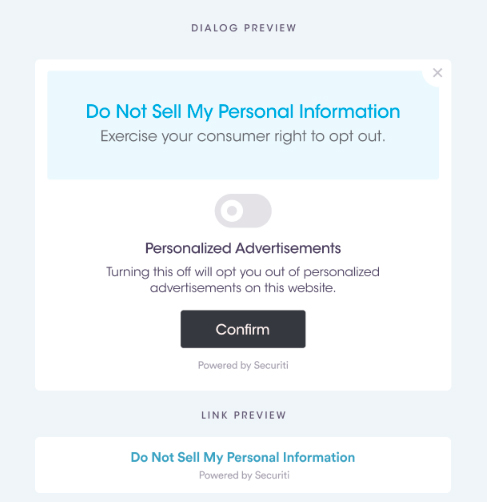Connect with us

The Vital Importance of Consent Management in Data Privacy
In today's digital landscape, safeguarding personal data is of utmost importance. With the rapid expansion of data collection and utilization, effective consent management has become a crucial factor in upholding individuals' privacy rights. Consent management involves obtaining, managing, and tracking individuals' consent for the use, sharing, and storage of their personal information. It empowers individuals to maintain control over their data and helps organizations adhere to privacy regulations. Failing to implement proper consent management can result in the mishandling of personal data, unauthorized sharing, or misused for unintended purposes, ultimately eroding trust and damaging relationships. Moreover, non-compliance with privacy regulations can expose organizations to severe legal and financial repercussions. By adopting robust consent management practices, organizations can safeguard data privacy, foster trust, and ensure compliance with the ever-evolving privacy landscape.
Table of Contents
What is Consent Management?
Consent management is the process of obtaining, organizing, and managing individuals' consent regarding the collection, use, and sharing of their personal data. It involves providing clear and transparent information to individuals about how their data will be used and giving them the ability to grant or withdraw consent. Consent Management ensures compliance with privacy regulations, empowers individuals to control their data, and helps establish trust between organizations and individuals. It involves maintaining a record of consent, enabling individuals to easily manage their preferences, and ensuring ongoing compliance with evolving privacy requirements.
Data privacy and consent management
The percentage of people using the internet every minute of the day is overwhelming but not shocking, to say the least. The “side effect” is that users unknowingly allow companies and applications to find their confidential data. There is a need to have a system that helps people determine the data they are willing to share with companies.
Businesses such as social chat apps, team chat apps, etc. harmlessly sell their audience data for specific purposes, like targeted advertisements, and in unfortunate conditions due to poor security, it may lead to cyberbullying. But consent management should take precedence over everything else, especially when more people are concerned about their data. As more privacy regulations come to the fore, getting consent from users before accessing their data should be the top priority of any company.
When should consent management be used?

Without consent, it is unlawful for companies to use customer data. However, there are many other ways to manage and obtain approval. The most optimal methods are:
Performance of a contract
When your business offers a product or a service to the user, a legal contract is what works better than any personal information. Therefore, the agreement in place becomes more necessary than consent. For example, if your user places an order from your website, they will have to share their home address to deliver the order. Upon the completion of the order, the data isn’t needed anymore.
Performance of public tasks
Authorities that carry out their responsibilities in the public interest or with extraordinary power do not need to comply with consent management standards. So, for example, people working in the government, the police force, or a school don’t require consent permission.
Legitimate reasons
There would be situations where the company would require their customers' data for valid reasons. This can be considered a gray area where the justification for using personal data can be interpreted legally.
Vital circumstances
Sometimes a person’s life may be at stake when processing personal data can be acceptable in all manners. However, this special permission doesn’t apply to any eCommerce businesses. The company accessing this data should have a genuine reason for doing so, or it will be considered illegal.
Legal obligation
Obtaining permission to access personal data is not a big deal in legal cases. The court needs enough background information, and the complete track record of the people caught up in the proceedings. This information helps in determining the outcome of many court cases.
Why is consent management needed?
Data privacy is of utmost importance to all users, and rules and regulations now govern it. Any non-compliance with those rules can cause companies to fall into serious trouble. Therefore, companies should take consent management seriously because of the following reasons:
Transparency in data and privacy for consumers
Internet access and data privacy are considered fundamental human rights. Therefore, every person should have the freedom to use the internet for multiple purposes, as long as it is for insecure or illegal purposes. But, on the other hand, one should have transparency in all of their online activities.
Legal action and fines due to noncompliance
Big corporations find it a minor affair to track down users’ data and get away with it. However, data privacy regulations don’t spare any company. Any business that comprises personal data or tampers with the information can face huge fines and legal action for not complying with the set rules.
Developing public trust
As data breaches have become more common, people find it difficult to trust companies to safeguard their sensitive data. Transparency in storage and the system to protect information will get people to trust companies again. Without consent management, businesses may see a drop in their customers.
What is a Consent Management Platform(CMP)?
Managing user consent can be a daunting task, especially when more data collection infrastructures are developed. Using the same system and becoming privacy compliant with little or no help from software may seem impossible. This is where consent management platforms come into the picture.
As per its name, a Consent Management Platform(CMP) is a tool that stores and manages user consent and passes the information to third-party vendors. In addition, a CMP can automate this process, enabling users to manage their cookies and preferences accordingly.
CMPs ensure that they are in sync with the dynamic data privacy laws. This helps businesses to stay compliant while meeting business goals. Additionally, CMPs block any third party who wants to create a website without complying with the privacy regulations. Some of the other benefits of CMPs are:
Real-time alerts
CMPs can track and record the visitors to any website in real-time. Additionally, if they notice any unusual activity or any other potential security issue, they can immediately alert the company about the data privacy rule that has been violated unknowingly.
Information transparency

CMPs can display cookie banners for cookies that request data collection. They will also update the users about the information stored and how it will be used. This helps maintain an open channel between the user and the company and helps build trust.
Streamlining operations
Companies can use a CMP as a central location to store all compliant consent responses. Then, the company can use the stored information and apply it across all departments within the organization.
Saves time and resources
While using a CMP, a company can save a lot of time and resources as the platform automates the entire consent process. In addition, despite your business's location and nature, you will always stay up-to-date with any regulation changes. Finally, you can operate your business without worrying, knowing that your users' data is secure.
Builds trust with customers
It goes without saying that people will establish a connection with only those companies where their best interests are taken care of. The positive experiences with your company will encourage them to build more potential customers for you in their family and friends.
Customized solutions to meet your company’s needs
Consent management is a flexible area that can be customized depending on the company's goals in which it is being implemented. Features like changing the language of consent messaging, vendor risk monitoring, and policy change detection can be easier to operate using a CMP.
What essential factors are needed for a Consent Management Platform?

One needs to look out for two primary factors in any Consent Management Platform. They are:
A seamless user experience
Clear communication is needed the most in any modern method of privacy solution. Users should understand the legal terms and technical requirements without any confusion. A CMP should display use cases and enable users to read further on each activity if required.
The CMP should be user-friendly and reflect your company’s brand as it will be an integral part of the company’s website. You can further customize the design of your CMP so that it merges with the complete brand image. It will help users connect with your company easily and build confidence in the brand.
An integrated approach to consent management
The trend to stack more applications and tools into the company has its advantages. But it also makes data flow complex and makes it difficult to manage and protect user data. Furthermore, the data flow to different systems should be per the data rights and regulations.
Consent management is not a one-time task but requires constant monitoring and updating. For example, your users can change their preferences after the initial encounter. So when the user updates consent, your company should be able to adjust data flow into the systems where it is permitted. These steps should ensure that your company has an integrated approach to consent management.
Conclusion
Understanding data privacy laws, data collection, and cookie management can be laborious. But one should note that the users should be the decision makers on how their information should be used or collected by a website or an application. A particular purpose should drive each consent they give.
The entire process of obtaining consent should be as straightforward as possible. Therefore, consent management platforms should be used by companies to get consent, comply with rules, and continue achieving business goals.





.jpg)


